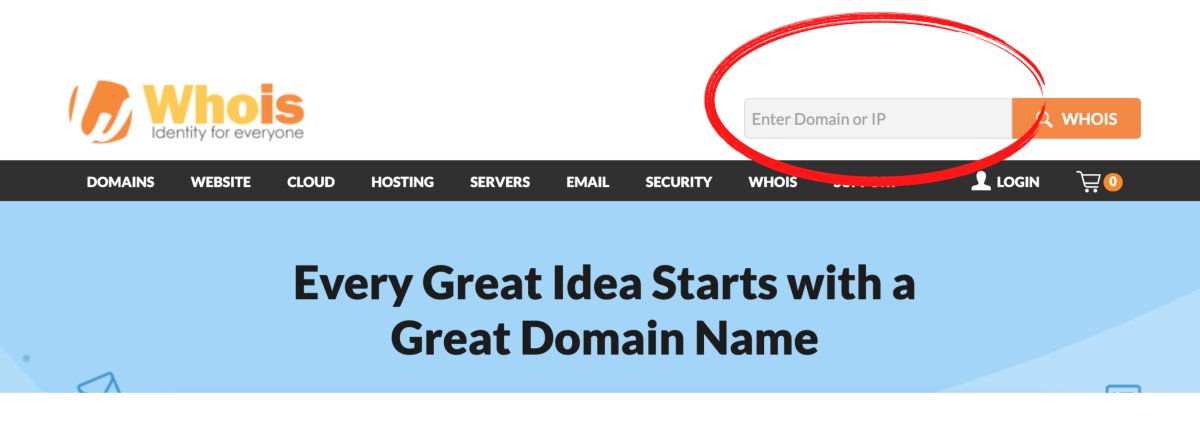In today’s digital age, your domain name is as important as the name of your business. After all, it’s how your customers find you. And like any other important business asset, your domain name needs to be managed and protected. However, many business owners don’t know who holds their domain name, how to access it, and when to renew it. If you’re part of this group, you’re at serious risk of losing your domain.
The Costly Mistake of Failing to Renew Your Domain Name
If you have a domain name, you or someone else at your company hired a domain registrar like GoDaddy, Bluehost, or Domain.com to manage it for you. The registrar uses Domain Name System (DNS) records to connect your domain name with your email, website, and other web services. The nominal fee you pay the registrar must be renewed annually. Failure to do so could result in the loss of your domain name.
Losing your domain name means another business has claimed it and registered it with a domain registrar. We’ve worked with clients in this situation. Some of them were able to buy their domain names back (often at a hefty price). Others weren’t so lucky. They had to register a new domain name, confusing their customers, and losing the website presence (SEO) they worked so hard to build over the years. Not to mention the high cost of updating any brand assets (business cards, brochures, trade show graphics, vehicle wraps, and more) that contain their domain name and associated email addresses.
Domain Registrars vs. Web Hosts: While closely related, domain hosting and web hosting are two different services. Your domain registrar provides a domain (e.g. www.sproutforbusiness.com) that people use to find you. Think of it as a street address that directs people to your website’s location. Your web host provides the space (server) where your site’s content (text, images, videos, etc.) is displayed. Some companies, such as Wix, Bluehost, and GoDaddy, provide both domain and web hosting services.
Protecting Your Domain Name
A domain name is an essential part of your brand and should be kept for the entire life of your business. The first step to protecting your domain name is knowing who your domain registrar is. If you’re not sure, talk to us and we’ll help you figure it out. Optionally, you can visit whois.com. Simply type in your domain name at the top, and you’ll find out who your registrar is.

Once you identify your domain registrar, be sure to make note of your annual renewal date. Also, confirm that your contact information is correct so you’ll be sure to receive any important notices they send you via email.
Don’t Fall Victim to Domain Renewal Scams
Another critical reason to know who your domain registrar is: cybercriminals send fake renewal invoices to domain owners all the time! They get your contact information from the public whois.com database. Their goal is to trick you into believing you’ve received a legitimate renewal notification so you’ll pay the fake invoice or visit a fraudulent website. Unfortunately, many people don’t realize they were scammed until their domain name expires, since it was never really renewed. There are many scammers out there sending invoices for domain registry and domain listings. They are not renewing your domain, rather they are simply adding your domain to a list somewhere and then charging you as much as twenty times the cost of a typical renewal. Be sure to give us a call if you ever have a question about the legitimacy of a domain renewal notice.
PRO TIP: To help prevent domain-related spam and domain hacking, consider paying your registrar the additional fee for a private registration. This type of registration blocks your personal information (including name, email, physical address, and phone number) from the public Whois directory.
Hassle-Free Domains
Some of our clients have us manage their domain name. You still own your domain, Sprout just manages it for you. We offer this service for a nominal fee.
Should you have Sprout manage your domain for you? It depends. If you’re a small business owner without an IT department, it might make sense for Sprout to manage your domain for you. You’ll never have to worry about any issues, including annual renewal and the scams noted above—and your domain and all of your website-related billing will be in one place.
If you have a larger, organized company, it’s generally best to manage your domain yourself and give Sprout access to it.
It’s best to manage your domain yourself if:
You have email addresses associated with your domain and an IT department that manages them.
You already have a domain and have been faithfully renewing it each year.
Your domain is held with domains for your other businesses—it’s best to keep them together.
Your domain name is one of your most important assets and needs to be carefully managed and protected. If you have questions about any of the information shared above, contact the Sprout team. We’re here to help!
